
Sulaymaniyah: The Cultural Heartbeat of Iraqi Kurdistan
Nestled in the picturesque mountains of Iraqi Kurdistan, Sulaymaniyah is a city that seamlessly blends modernity with tradition. Known for its vibrant cultural scene, Sulaymaniyah is a hub for art, literature, and intellectual pursuits. The city is home to the renowned Sulaymaniyah Museum, which boasts an impressive collection of antiquities that offer a glimpse into the region's rich history. Walking through its streets, you will find a mix of historic and contemporary architecture, reflecting the city's dynamic spirit. The city's charm is further enhanced by its warm and welcoming people. The local markets, or bazaars, are bustling with activity and offer a sensory overload with their colorful displays of spices, textiles, and handicrafts. For a taste of local cuisine, visitors must try the traditional Kurdish dishes served in the many eateries scattered throughout the city. From hearty stews to mouth-watering kebabs, the food in Sulaymaniyah is sure to leave a lasting impression. Sulaymaniyah is also a gateway to the natural beauty of the surrounding region. The mountains that encircle the city are perfect for hiking and offer stunning vistas of the landscape below. Whether you're exploring the city’s vibrant urban life or venturing into the great outdoors, Sulaymaniyah promises an unforgettable experience.
Local tips in Sulaymaniyah
- Visit the Sulaymaniyah Museum early in the day to avoid crowds and fully immerse yourself in the exhibits.
- Explore the local bazaars for unique souvenirs and the best of Kurdish crafts. Bargaining is common, so don't hesitate to negotiate prices.
- Try the local dish 'Dolma' which is a traditional Kurdish delicacy made with vine leaves stuffed with rice and meat.
- Dress modestly when visiting religious or cultural sites out of respect for local customs.
- Take a day trip to the nearby Hawraman Valley for breathtaking mountain views and a taste of rural Kurdish life.
Sulaymaniyah: The Cultural Heartbeat of Iraqi Kurdistan
Nestled in the picturesque mountains of Iraqi Kurdistan, Sulaymaniyah is a city that seamlessly blends modernity with tradition. Known for its vibrant cultural scene, Sulaymaniyah is a hub for art, literature, and intellectual pursuits. The city is home to the renowned Sulaymaniyah Museum, which boasts an impressive collection of antiquities that offer a glimpse into the region's rich history. Walking through its streets, you will find a mix of historic and contemporary architecture, reflecting the city's dynamic spirit. The city's charm is further enhanced by its warm and welcoming people. The local markets, or bazaars, are bustling with activity and offer a sensory overload with their colorful displays of spices, textiles, and handicrafts. For a taste of local cuisine, visitors must try the traditional Kurdish dishes served in the many eateries scattered throughout the city. From hearty stews to mouth-watering kebabs, the food in Sulaymaniyah is sure to leave a lasting impression. Sulaymaniyah is also a gateway to the natural beauty of the surrounding region. The mountains that encircle the city are perfect for hiking and offer stunning vistas of the landscape below. Whether you're exploring the city’s vibrant urban life or venturing into the great outdoors, Sulaymaniyah promises an unforgettable experience.
When is the best time to go to Sulaymaniyah?
Iconic landmarks you can’t miss
Chavi Land
Experience thrilling rides, family fun, and stunning views at Chavi Land, Sulaymaniyah's ultimate amusement park destination!
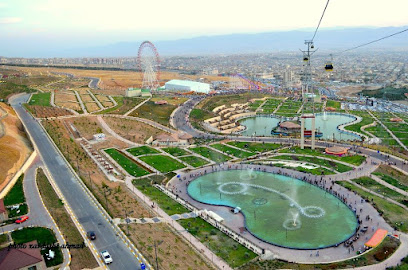
Majidi Mall Sulaimaniyah
Experience world-class shopping, dining, and entertainment at Sulaimaniyah's premier mall, Majidi Mall. A modern hub blending local and global experiences.
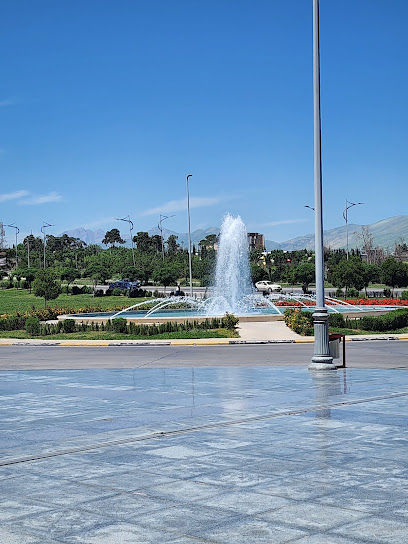
Family Mall
Sulaymaniyah's premier shopping destination with international brands, dining, and family-friendly entertainment for locals and tourists.
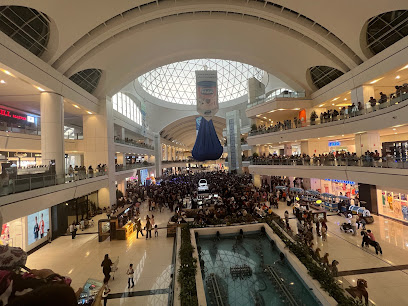
مزگەوتی گەورەی سلێمانی
Discover Sulaymaniyah's spiritual heart at the Great Mosque, a historic landmark blending Islamic architecture with Kurdish heritage.
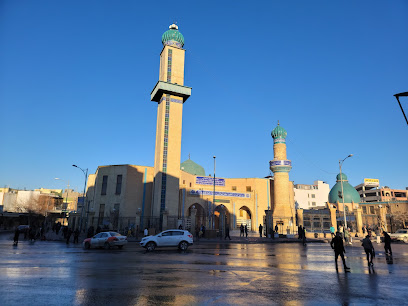
Azadî Park
Escape to Sulaymaniyah's Azadî Park: A vibrant green space for recreation, cultural events, and tranquil relaxation in the heart of the city.
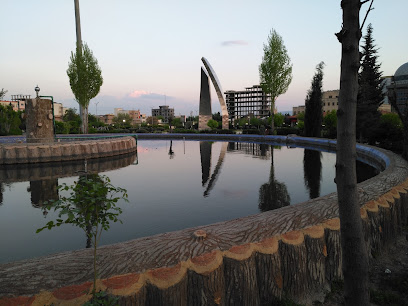
Sarchnar Park
Escape to Sarchnar Park in Sulaymaniyah: A lush oasis offering tranquility, recreation, and stunning natural beauty.
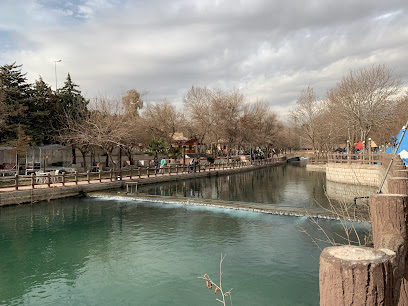
City Star Mall
Experience top-rated shopping, dining, and entertainment at City Star Mall, Sulaymaniyah's premier retail destination for locals and tourists.
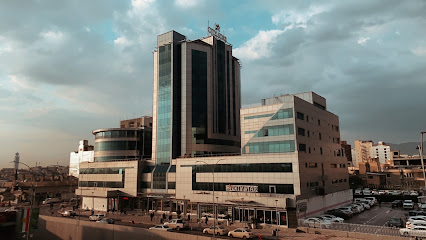
Public Park
A green oasis in the heart of Sulaymaniyah, perfect for relaxation, recreation, and enjoying the outdoors.
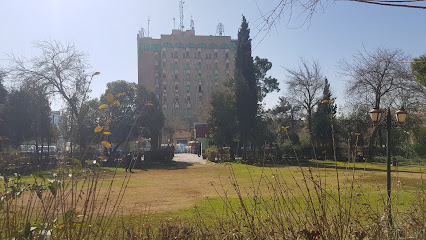
Dolphin Hotel & Hostel Sulaymaniyah
Centrally located, budget-friendly hotel & hostel in Sulaymaniyah, offering comfortable accommodations and easy access to city attractions.
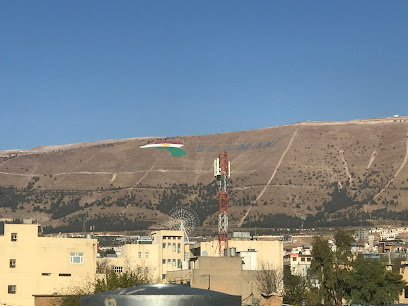
بەردەرکی سەرا Sara Square
Discover the vibrant heart of Sulaymaniyah at Sara Square, a historical landmark offering a unique glimpse into Kurdish culture and heritage.
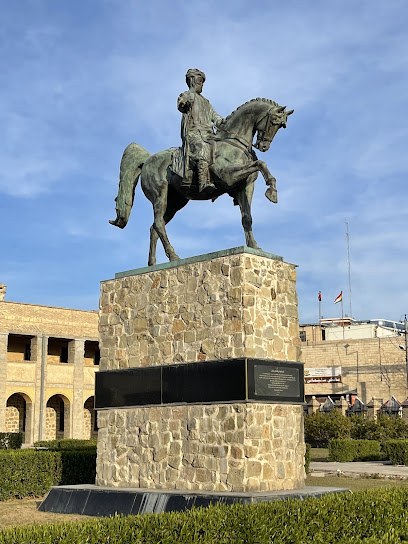
متنزه جافي لاند
Escape to Sulaymaniyah's Jafi Land Park: A green oasis with gardens, recreation, and stunning mountain views for a perfect family day.
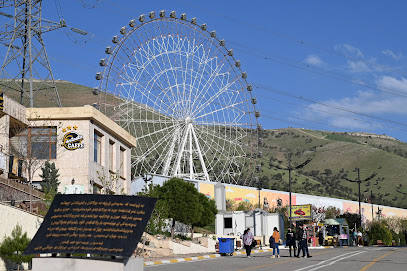
Sulaymaniyah International Airport
Your first step into Iraqi Kurdistan: Modern airport providing international access to Sulaymaniyah's culture, history, and natural beauty.
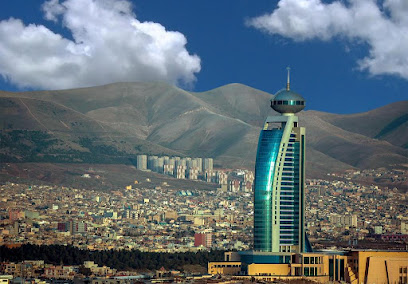
Hawari Shar Park
Escape to nature in the heart of Sulaymaniyah at Hawari Shar Park, one of the Middle East's largest green spaces.
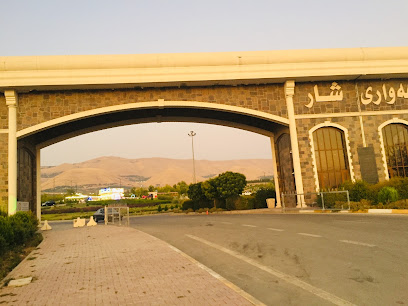
Khan Saray Hotel
Experience comfort and convenience at Khan Saray Hotel in Sulaymaniyah, offering modern amenities and a central location for exploring the city.
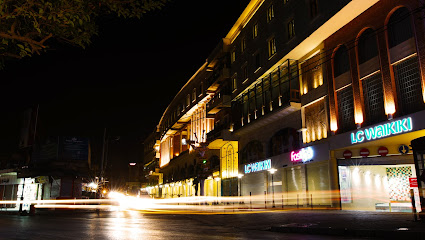
Roman Theatre - Şanoy Romanî
Explore the ancient Roman Theatre in Sulaymaniyah, a captivating landmark showcasing the region's rich history and architectural grandeur.
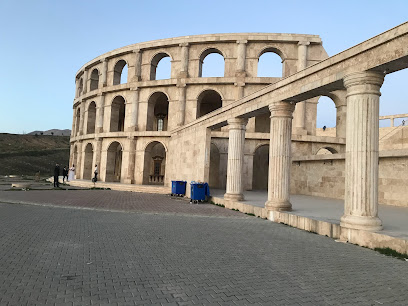
Unmissable attractions to see
مزگەوتی گەورەی سلێمانی
A historic mosque in Sulaymaniyah, dating back to 1785, revered as a religious and cultural center and final resting place of notable figures.
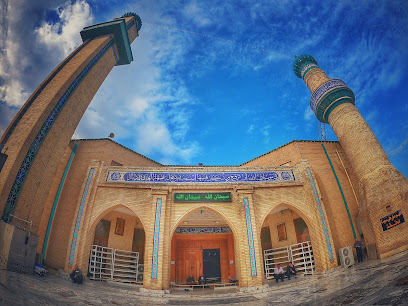
Azadî Park
Escape to Sulaymaniyah's Azadî Park: A vibrant green space for relaxation, recreation, and cultural immersion in the heart of the city.
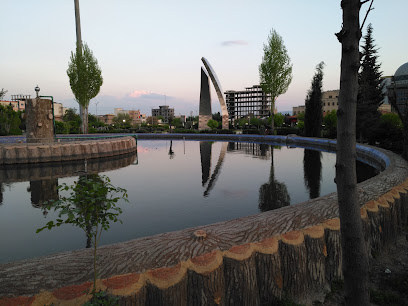
Sarchnar Park
Escape to Sulaymaniyah's Sarchnar Park: A serene oasis with lush landscapes, cultural events, and recreational activities for all ages.
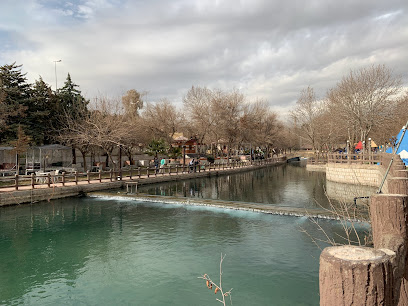
Azadi Amusement Park
Experience thrilling rides and family fun at Azadi Amusement Park in the heart of Sulaymaniyah. Open evenings for entertainment.
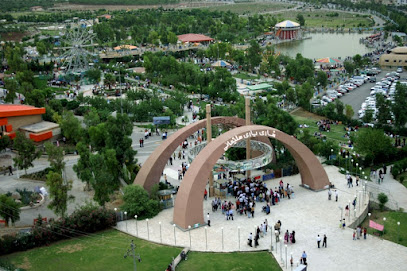
جبل أزمر
استمتع بإطلالات خلابة على السليمانية من جبل أزمر، وجهة سياحية طبيعية ساحرة توفر مناخًا معتدلًا ومناظر خلابة على مدار العام.
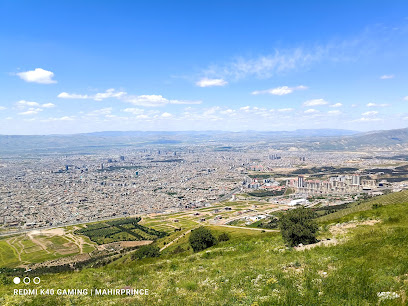
Hawari Shar Park
Escape to Sulaymaniyah's largest green space: Hawari Shar Park, offering recreation, relaxation, and cultural events for all ages.
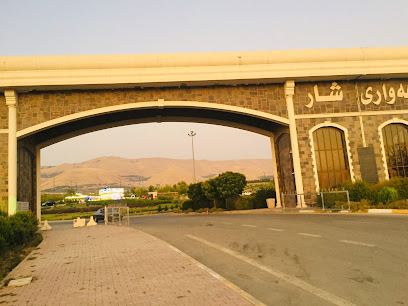
Roman Theatre - Şanoy Romanî
Explore the ancient Roman Theatre in Sulaymaniyah, a captivating landmark showcasing the region's rich history and Roman architectural influence.
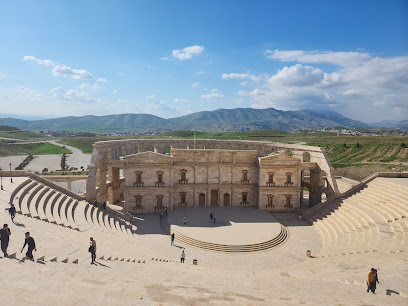
Amna Suraka, Red Museum
Explore Amna Suraka, the Red Museum in Sulaymaniyah: a poignant memorial to Kurdish resilience and a stark reminder of Iraq's turbulent past.
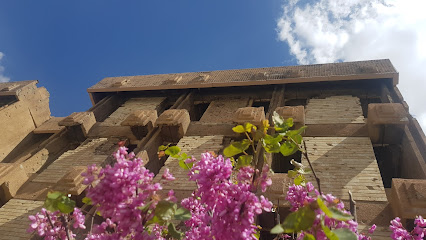
Slemani Museum
Explore millennia of history at the Slemani Museum, showcasing Kurdistan's rich cultural heritage from prehistoric times to the Ottoman era.
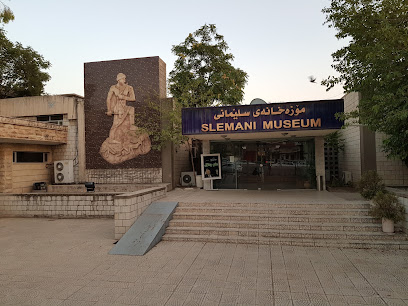
Goizha Mountain
Hike to panoramic views, discover nature, and immerse yourself in the beauty of Sulaymaniyah from the heights of Goizha Mountain.
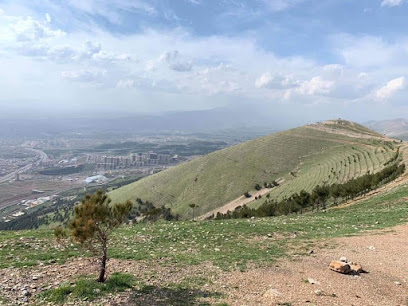
Hawary Shar Park
Escape to Sulaymaniyah's largest green space: Hawary Shar Park, a serene retreat for relaxation, recreation, and community events.
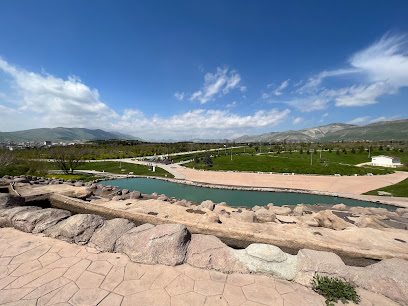
Azmar Mountain
Hike, photograph, and relax amidst the stunning vistas of Azmar Mountain, a natural and cultural landmark overlooking Sulaymaniyah.
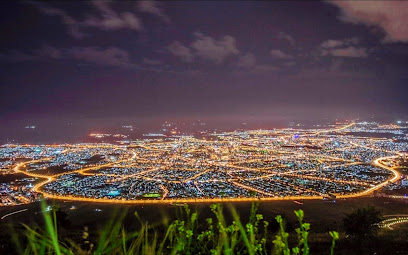
فولکەی دەستاڕەکە
Discover the enchanting beauty of فولکی دساتیک, a tranquil garden in Sulaymaniyah, ideal for relaxation and cultural immersion.
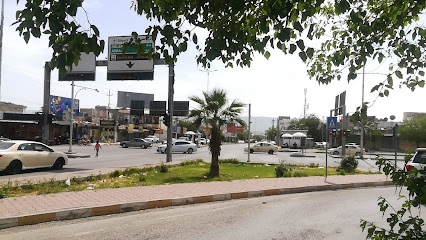
Kurd's Heritage Museum
Explore Kurdish history and traditions at Sulaymaniyah's Kurd's Heritage Museum, a cultural gem preserving the region's rich past.
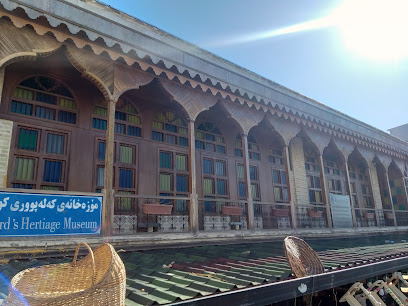
Shahidan Park
Find tranquility in Sulaymaniyah's Shahidan Park: A green oasis for relaxation and cultural experiences.
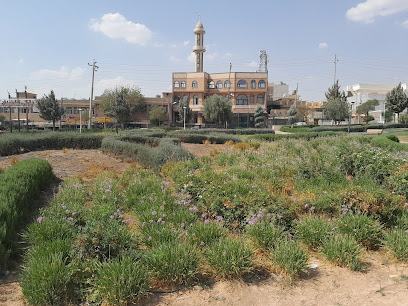
Essential places to dine
Sardar Restaurant
Discover the authentic taste of Kurdish cuisine at Sardar Restaurant in Sulaymaniyah – a must-visit for every food lover.
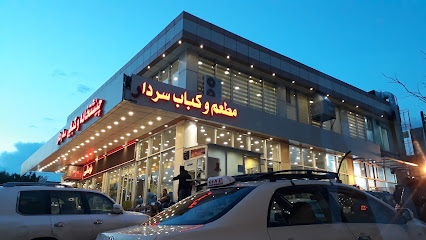
Dawa Restaurant
Experience the vibrant flavors of Kurdish cuisine at Dawa Restaurant in Sulaymaniyah—where tradition meets modern dining.
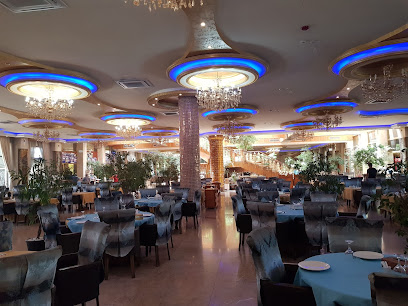
ABC Restaurant Sulaymaniyah
Experience exceptional dining at ABC Restaurant in Sulaymaniyah - where local flavors meet international cuisine in a warm atmosphere.
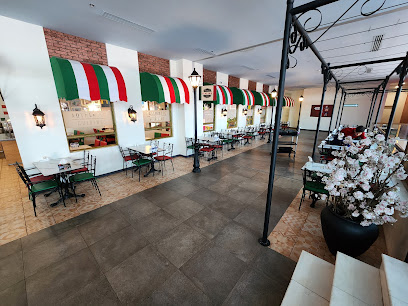
Diwan Restaurant
Experience exquisite Middle Eastern cuisine at Diwan Restaurant in Sulaymaniyah - where tradition meets modern dining.
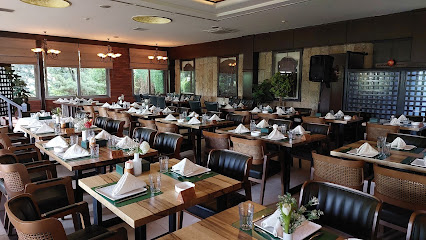
De Fermu Restaurant Sulaymaniyah
Experience authentic Kurdish flavors at De Fermu Restaurant in Sulaymaniyah, famous for its delicious kebabs and welcoming atmosphere.
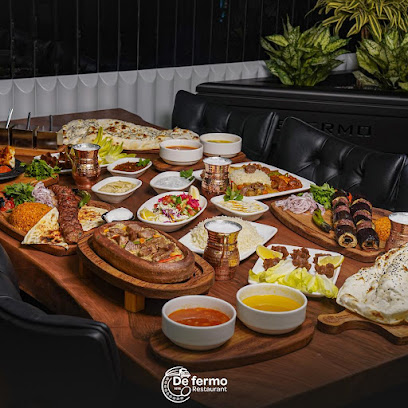
Ham Restaurant
Experience authentic Kurdish cuisine at Ham Restaurant in Sulaymaniyah - where every meal tells a story.
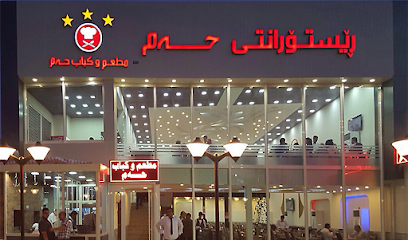
falafelo
Experience authentic Middle Eastern cuisine at Falafelo in Sulaymaniyah - where flavor meets tradition!
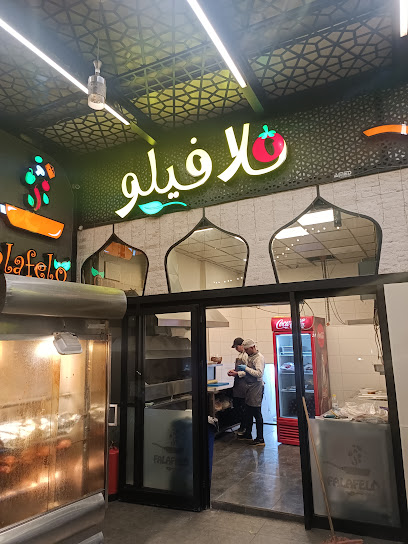
Moka & More Sulaimani
Experience culinary excellence at Moka & More Sulaimani—where fine dining meets cozy café vibes in the heart of Sulaymaniyah.
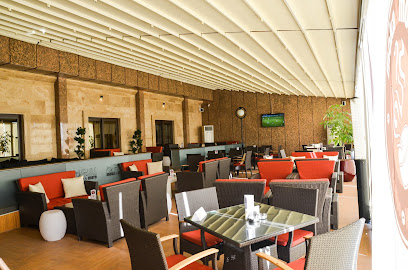
Lai Lawk Cafe & Rest.
Experience authentic Iraqi cuisine at Lai Lawk Cafe & Rest., where every meal tells a story in the heart of Sulaymaniyah.
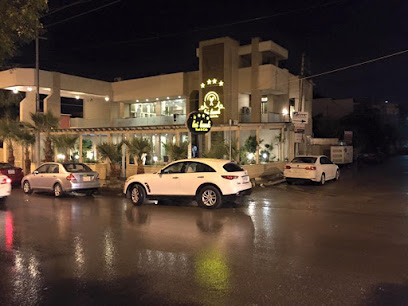
Xani Cafe & Beakfast
Discover the vibrant flavors of Xani Cafe & Breakfast in Sulaymaniyah—where every meal tells a story.
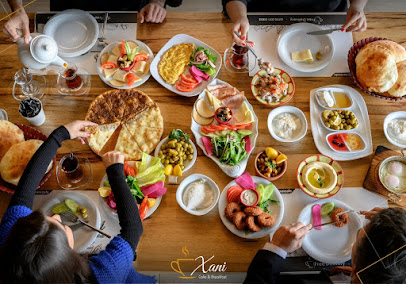
Mandela Bistro
Savor authentic Kurdish flavors at Mandela Bistro in Sulaymaniyah - where culinary tradition meets modern dining.
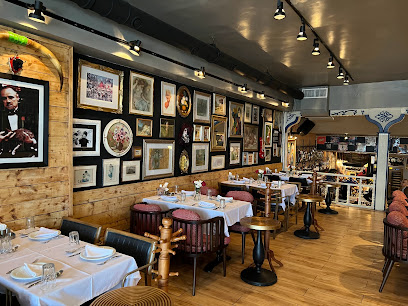
The Station
Discover the taste of tradition at The Station in Sulaymaniyah - where culinary excellence meets vibrant atmosphere.
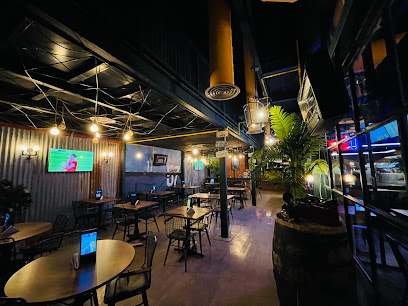
MANGAL RESTAURANT
Discover the rich flavors of Kurdish cuisine at Mangal Restaurant in Sulaymaniyah – where every meal tells a story.
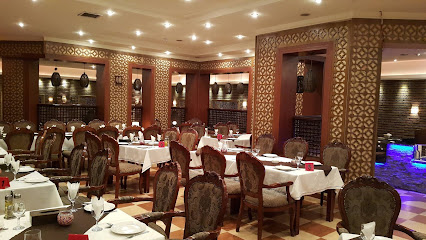
Ivy Dining & Co.
Experience the vibrant flavors of Sulaymaniyah at Ivy Dining & Co., where tradition meets modern culinary artistry in an inviting atmosphere.
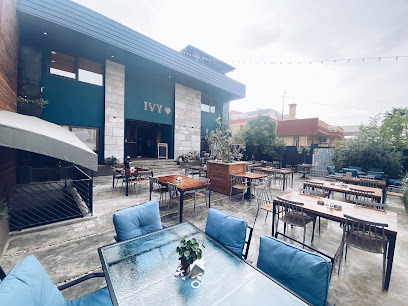
Star Cafe - ستار ڪافێ
Experience authentic Kurdish cuisine at Star Cafe - your perfect dining destination in Sulaymaniyah.
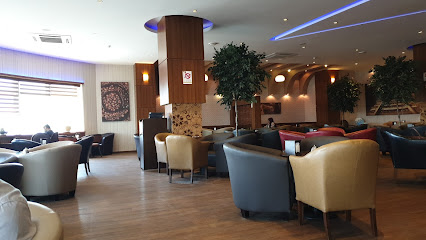
Markets, malls and hidden boutiques
Majidi Mall Sulaimaniyah
Discover the ultimate shopping experience at Majidi Mall in Sulaymaniyah, where modern retail meets local culture in a vibrant atmosphere.
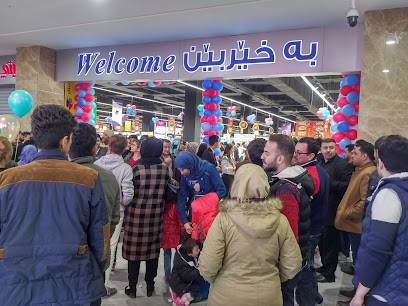
Family Mall
Explore Family Mall in Sulaymaniyah for a unique shopping experience, featuring diverse stores, dining options, and family-friendly entertainment.
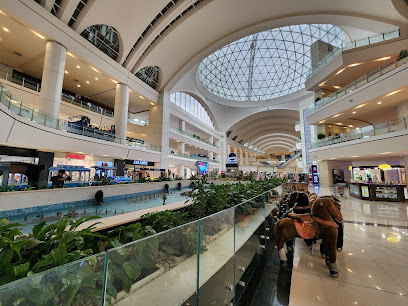
City Star Mall
Discover the ultimate shopping experience in Sulaymaniyah at City Star Mall, where retail therapy meets entertainment for all ages.
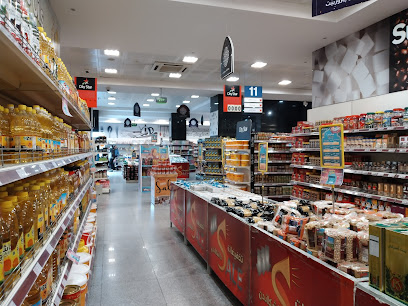
Rand Gallery
Explore Rand Gallery in Sulaymaniyah for an unforgettable shopping experience with local and international brands, dining, and entertainment options.
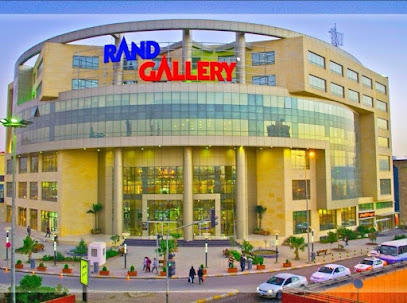
House of Brands
Explore the House of Brands in Sulaymaniyah, where shopping meets local culture in a vibrant atmosphere filled with diverse shops and dining options.
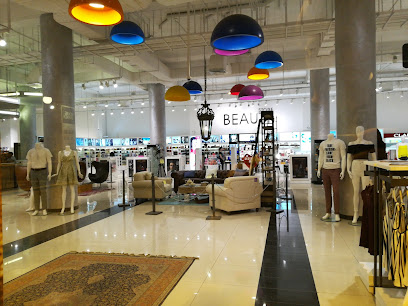
LuxoStyle
Explore LuxoStyle in Sulaymaniyah for unique women's fashion blending tradition and modern elegance, perfect for every occasion.

MINISO
Explore MINISO in Sulaymaniyah for trendy, affordable home goods and unique lifestyle products that make perfect souvenirs for your travels.
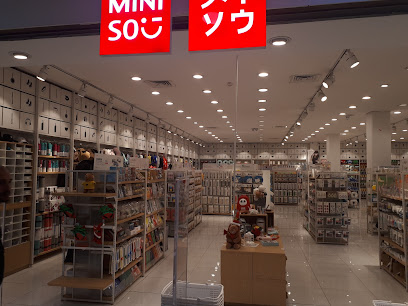
Diora Mall
Explore the vibrant Diora Mall in Sulaymaniyah, where shopping, dining, and entertainment come together for an unforgettable experience.
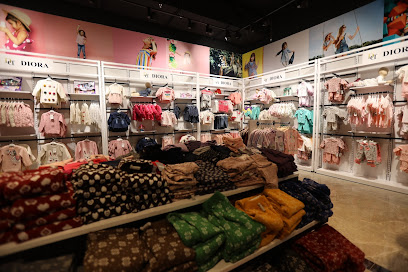
Qaiwan Plus Mall
Experience unparalleled luxury shopping at Qaiwan Plus Mall in Sulaymaniyah, home to the finest bag shop and exquisite retail offerings.
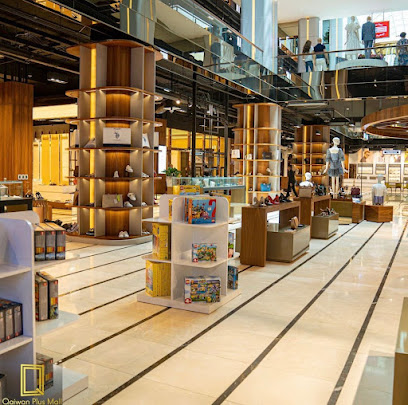
Sisterhood Products kiosk
Explore Sisterhood Products Kiosk in Sulaymaniyah for unique handcrafted candles, perfect souvenirs that embody local craftsmanship and culture.
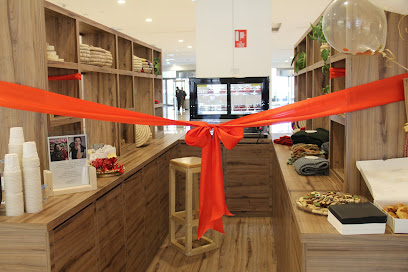
ShoppingShop
Explore the best fashion trends at ShoppingShop in Sulaymaniyah, a family-friendly clothing store perfect for every style and occasion.
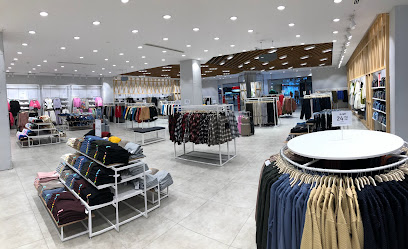
Anusha Shopping
Explore Anusha Shopping in Sulaymaniyah for unique home goods that showcase local craftsmanship and enrich your living space.
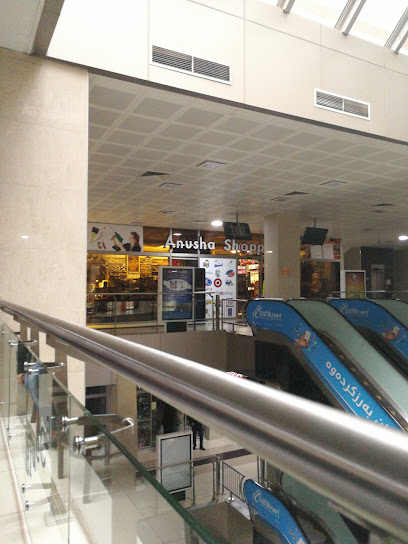
Zada Shopping
Discover unique women's fashion at Zada Shopping in Sulaymaniyah, where local charm meets contemporary style.
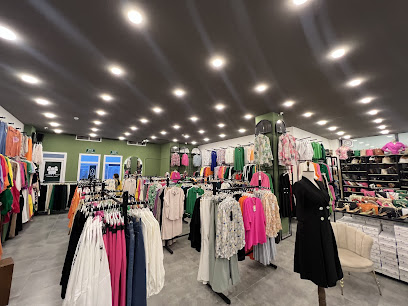
On shop 1
Explore On Shop 1 in Sulaymaniyah for unique clothing and accessories that capture the essence of local fashion and style.
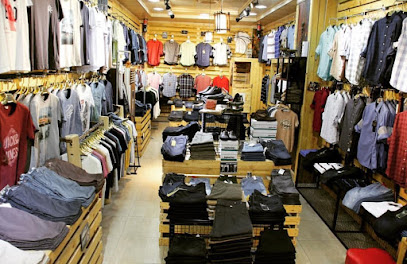
Bwar boutique
Discover a vibrant shopping experience at Bwar Boutique in Sulaymaniyah, where local crafts meet modern style in a culturally rich atmosphere.
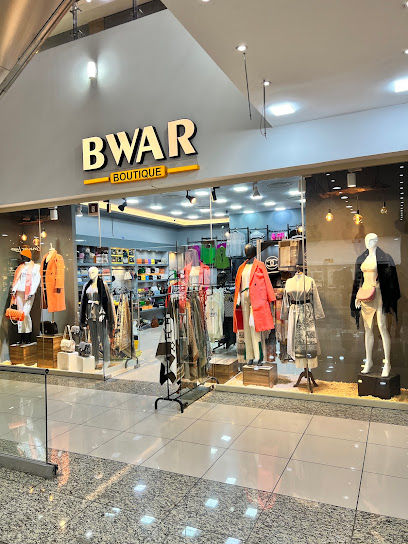
Essential bars & hidden hideouts
Roundabout
Experience the vibrant nightlife of Sulaymaniyah at Roundabout, where local culture and modern entertainment meet for an unforgettable evening.
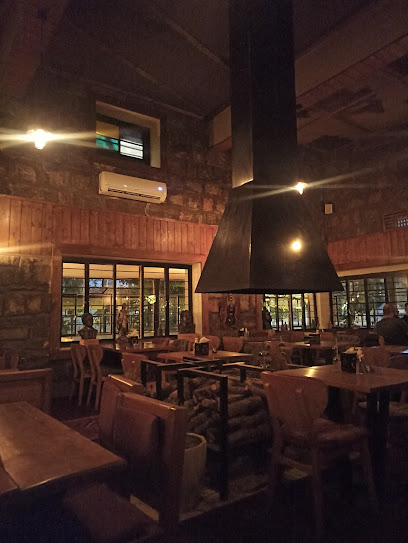
Vogue Lounge
Discover Vogue Lounge in Sulaymaniyah, where a stylish atmosphere meets delightful drinks and a welcoming vibe for every visitor.
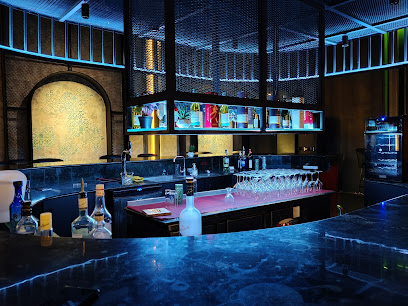
مطعم الجبل
Discover the vibrant nightlife and local flavors at مطعم الجبل in Sulaymaniyah, where every visit is a unique cultural experience.
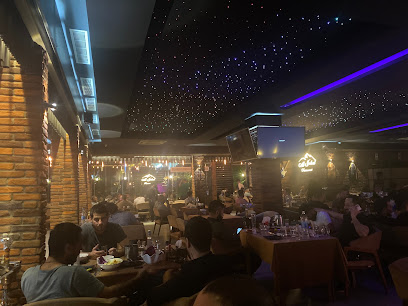
Irish Pub Dubliner
Discover the vibrant atmosphere of the Dubliner Pub in Sulaymaniyah, where authentic Irish hospitality meets local flavors.
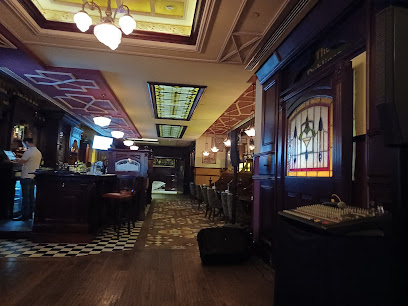
Havana Lounge
Discover the lively Havana Lounge in Sulaymaniyah, where great food, vibrant atmosphere, and friendly service await every visitor.
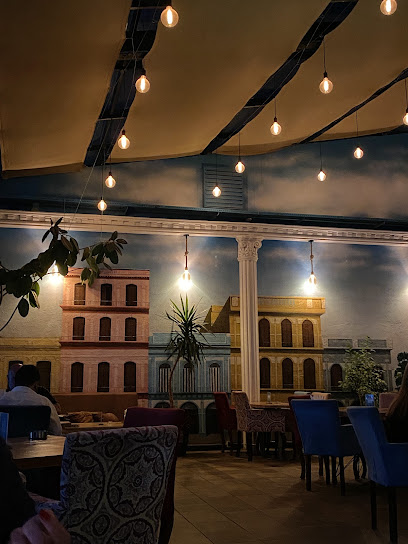
Terrace Restaurant
Experience the vibrant nightlife of Sulaymaniyah at Terrace Restaurant, the ultimate cocktail bar for exquisite drinks and stunning views.
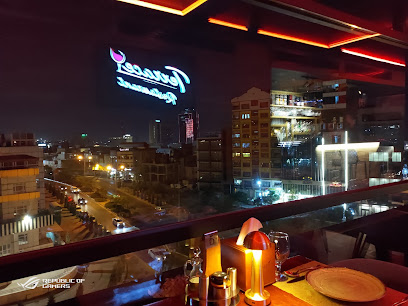
sofi bar
Discover the culinary delights at Sofi Bar in Sulaymaniyah, where grill meets tradition and flavors come alive in a vibrant setting.

Lobby Lounge
Discover the elegance and tranquility of the Lobby Lounge in Sulaymaniyah, where relaxation meets sophisticated ambiance.
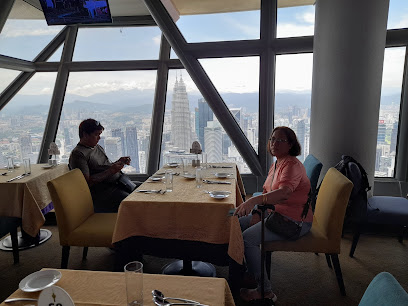
Crystal Champagne Bar
Indulge in a luxurious experience at the Crystal Champagne Bar, Sulaymaniyah's premier destination for fine cocktails and wines.

BLEND .Marketland for the sale of alcoholic drinks
Discover Sulaymaniyah's vibrant nightlife at BLEND, a bar offering a diverse selection of alcoholic drinks in a lively atmosphere.
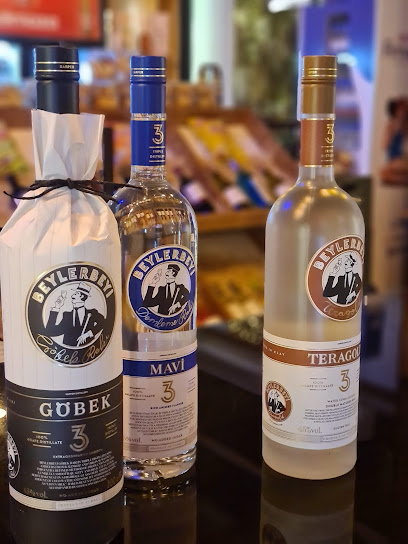
Pasha Restaurant
Discover the vibrant nightlife at Pasha Restaurant, a top bar in Sulaymaniyah offering a unique blend of local flavors and an inviting atmosphere.
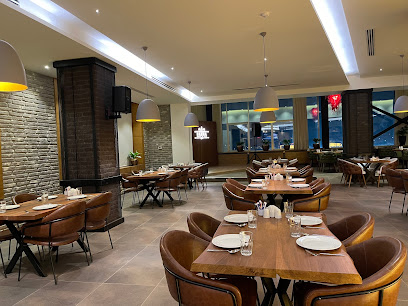
مطعم سرجنار
Experience the lively ambiance and local flavors at مطعم سرجنار, the heart of nightlife in Sulaymaniyah, Iraq.

Caffe
Experience the heart of Sulaymaniyah at Caffe, a charming bar where locals and travelers come together over delightful drinks and engaging conversations.

The Piano Bar
Experience the vibrant nightlife of Sulaymaniyah at The Piano Bar, where live music and delightful drinks create an enchanting atmosphere.

Local Phrases
-
- Helloسڵاو / خۆش
[Slaw / Khosh] - Goodbyeبابەی / دەرخستن
[Babe / Derkhestan] - Yesبەلێ
[Belle] - Noنەخێر
[Nekher] - Please/You're welcomeتکایە / خواهشان
[Tkaye / Khwashan] - Thank youسوپاس / رەحمان
[Sopas / Rehman] - Excuse me/Sorryببورە / ببخشەوە
[Bbore / Bbakhshewa] - How are you?چۆنی چۆنی؟
[Choni Choni?] - Fine. And you?باشە. تۆ چی دەکەی؟
[Bashe. To chi dekei?] - Do you speak English?ئینگلیزی دەقەیت؟
[Ingilizi deqait?] - I don't understandناچیتەوەم
[Nachitewam]
- Helloسڵاو / خۆش
-
- I'd like to see the menu, pleaseدەتەوێ بخەیم، تکایە
[Detewa bakhem, tkaye] - I don't eat meatمەن گۆشت نەخەم
[Men gosht nekhem] - Cheers!بهختۆ
[Bakhto] - I would like to pay, pleaseدەتەوێ پارە بدرێم، تکایە
[Detewa pare bdarem, tkaye]
- I'd like to see the menu, pleaseدەتەوێ بخەیم، تکایە
-
- Help!یارمەتی!
[Yarmeti!] - Go away!لە وەرگرتن!
[La wargertan!] - Call the Police!پۆلیس بپەخشێنە!
[Polis bpexshene!] - Call a doctor!دۆکتۆر بپەخشێنە!
[Doktor bpexshene!] - I'm lostمن لە گمردنم
[Men le gomrdanem] - I'm illمن نەخۆشم
[Men nekhoshem]
- Help!یارمەتی!
-
- I'd like to buy...دەتەوێ خرید بکەم...
[Detewa khrid bkem...] - I'm just lookingمن تەنها دەتوانم بچۆم
[Men tenha detwanem bchom] - How much is it?ئەوە بەرزێکی چێکە؟
[Ewe berzayki cheke?] - That's too expensiveئەوە زۆر گرانە
[Ewe zor gerane] - Can you lower the price?دەتوانی کەمبەرەوەی بکەی؟
[Detwani kamberewei bkei?]
- I'd like to buy...دەتەوێ خرید بکەم...
-
- What time is it?کەتە کاتێکە؟
[Kete kateke?] - It's one o'clockیەکەیەکە
[Yekayeke] - Half past (10)نیم بەردەم (10)
[Nim berdem (10)] - Morningصبح
[Sobh] - Afternoonپاشین
[Pashin] - Eveningئێوارە
[Eware] - Yesterdayدوێنێ
[Doyene] - Todayئەمڕۆ
[Amro] - Tomorrowسەرەتا
[Sereta] - 1یەک
[Yek] - 2دوو
[Dow] - 3سێ
[Se] - 4چوار
[Chwar] - 5پێنج
[Painj] - 6شەش
[Shesh] - 7حەوت
[Hewt] - 8هەشت
[Hasht] - 9نۆ
[No] - 10دە
[De]
- What time is it?کەتە کاتێکە؟
-
- Where's a/the...?.... کەوە؟
[... Ke?] - What's the address?ناونیشان بکەوە؟
[Nawneşan bewe?] - Can you show me (on the map)?ئیشانم بدەرەوەی بکەی؟
[Işanem bderewei bkei?] - When's the next (bus)?کاتێک بەردەمی داهاتوانێ؟
[Katek berdemi dahatane?] - A ticket (to ....)بلیت (بۆ ....)
[Bilet (bo ....)]
- Where's a/the...?.... کەوە؟
History of Sulaymaniyah
-
Sulaymaniyah was founded in 1784 by Ibrahim Pasha Baban, the Kurdish prince of the Baban principality. The city was named after his father, Sulaiman Pasha. It was established as the new capital of the Baban principality, replacing the older city of Qalachwalan.
-
During the Baban period, Sulaymaniyah became an important cultural and political center in the region. The city flourished under the rule of successive Baban leaders, who invested in the development of infrastructure, educational institutions, and arts. This era saw a significant growth in Kurdish literature and culture.
-
In the mid-19th century, the Ottoman Empire exerted control over the Kurdish regions, including Sulaymaniyah. The city's strategic location made it a focal point for various military campaigns and administrative activities. Despite the centralization efforts of the Ottoman authorities, Sulaymaniyah maintained a degree of autonomy.
-
Following World War I and the dissolution of the Ottoman Empire, Sulaymaniyah came under British mandate. The region experienced significant political changes, including the incorporation into the newly established Kingdom of Iraq in 1932. This period was marked by Kurdish uprisings and demands for greater autonomy.
-
Throughout the 20th century, Sulaymaniyah was a center for Kurdish nationalist movements. Notable uprisings, such as the Barzani-led revolts in the 1960s and 1970s, had significant impacts on the city's political landscape. These efforts were part of the larger struggle for Kurdish autonomy within Iraq.
-
In the late 1980s, Sulaymaniyah and its surrounding areas suffered during the Anfal campaign, a genocidal campaign conducted by the Iraqi government under Saddam Hussein. Thousands of Kurds were killed, and many villages were destroyed. The city became a symbol of Kurdish resistance and suffering.
-
After the 2003 Iraq War and the fall of Saddam Hussein, Sulaymaniyah experienced significant political and economic changes. The city became part of the autonomous Kurdistan Region of Iraq. It has since developed into a hub for culture, education, and tourism, attracting visitors with its rich history and vibrant cultural scene.
-
Sulaymaniyah is known for its vibrant cultural life, with numerous museums, theaters, and festivals. The city is home to the Sulaymaniyah Museum, which houses important archaeological artifacts, and the Amna Suraka Museum, a former prison turned museum that documents the atrocities of the Ba'athist regime. The city also hosts the annual Sulaymaniyah International Film Festival.
Sulaymaniyah Essentials
-
Sulaymaniyah is accessible by air through the Sulaymaniyah International Airport (ISU), which has direct flights from various Middle Eastern and European cities. Alternatively, you can reach Sulaymaniyah by road from major Iraqi cities like Erbil, Baghdad, and Kirkuk. Buses and shared taxis operate regularly from these cities to Sulaymaniyah, providing a scenic route through the Kurdish countryside.
-
Within Sulaymaniyah, taxis are the most common form of transportation and are relatively inexpensive. Ride-sharing apps like Careem also operate in the city. For a more local experience, you can use minibuses, known as 'coasters,' which connect various parts of the city. Renting a car is an option for those who prefer to explore at their own pace, but be aware that traffic can be hectic.
-
The official currency is the Iraqi Dinar (IQD). While credit cards are accepted in some hotels, restaurants, and larger shops, it is advisable to carry cash, especially when visiting smaller establishments or markets. ATMs are available throughout Sulaymaniyah, but ensure you have enough cash for places that may not accept cards.
-
Sulaymaniyah is generally considered safe for tourists, but it is always wise to be cautious. Avoid wandering alone at night in unfamiliar areas and stay aware of your surroundings. The city center and popular tourist spots are usually safe, but exercise caution in less populous areas. Keep an eye on your belongings in crowded places to avoid petty theft.
-
In case of emergency, dial 112 for immediate assistance. Sulaymaniyah has several hospitals and medical clinics, with Faruk Medical City being one of the most reputable. It is recommended to have travel insurance that covers medical emergencies. For minor health issues, pharmacies are readily available, and many staff members speak English.
-
Fashion: Do dress modestly, covering shoulders and knees, especially when visiting religious sites. Avoid wearing revealing clothing. Religion: Do respect local customs and traditions. When visiting mosques, remove your shoes and cover your head if you are a woman. Public Transport: Do be respectful and considerate of others. Don't eat or drink on public transport. Greetings: Do greet people with a handshake. Men often greet each other with a kiss on both cheeks. Eating & Drinking: Do try local Kurdish dishes and accept food offerings graciously. Don't refuse hospitality, as it is considered impolite.
-
To experience Sulaymaniyah like a local, visit the bazaar where you can buy fresh produce, spices, and traditional Kurdish goods. Engage with locals, who are often friendly and eager to share stories about their culture and history. Don't miss visiting the Amna Suraka Museum to understand the region's past. For a unique experience, take a hike in the nearby Azmar Mountain for breathtaking views of the city.
Trending Landmark in Sulaymaniyah
Nearby Cities to Sulaymaniyah
-
Things To Do in Kirkuk
-
Things To Do in Erbil
-
Things To Do in Mosul
-
Things To Do in Dohuk
-
Things To Do in Baghdad
-
Things To Do in Karbala
-
Things To Do in Najaf
-
Things To Do in Kapan
-
Things To Do in Amara
-
Things To Do in Goris
-
Things To Do in Vayk
-
Things To Do in Jermuk
-
Things To Do in Yerevan
-
Things To Do in Tsaghkadzor
-
Things To Do in Aparan













